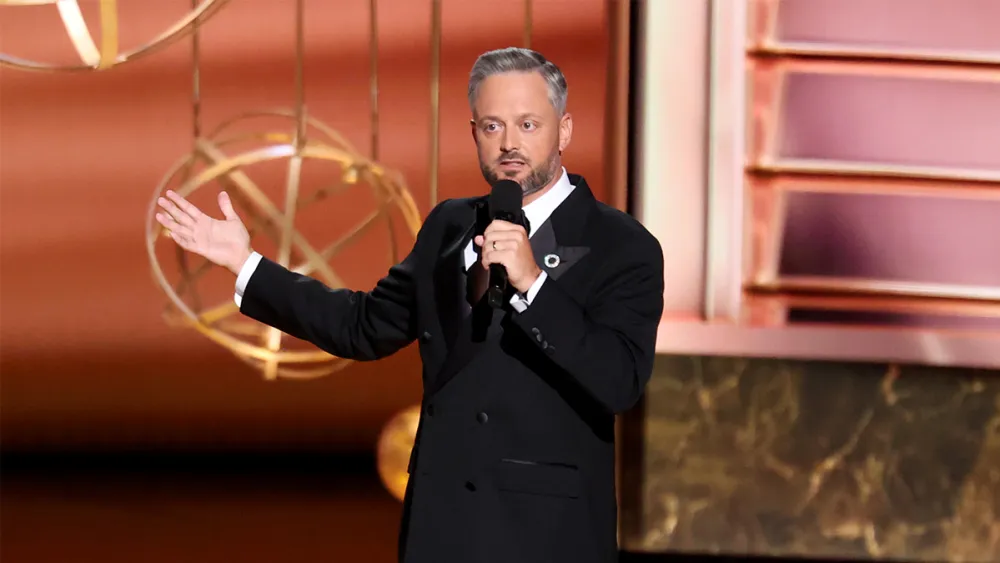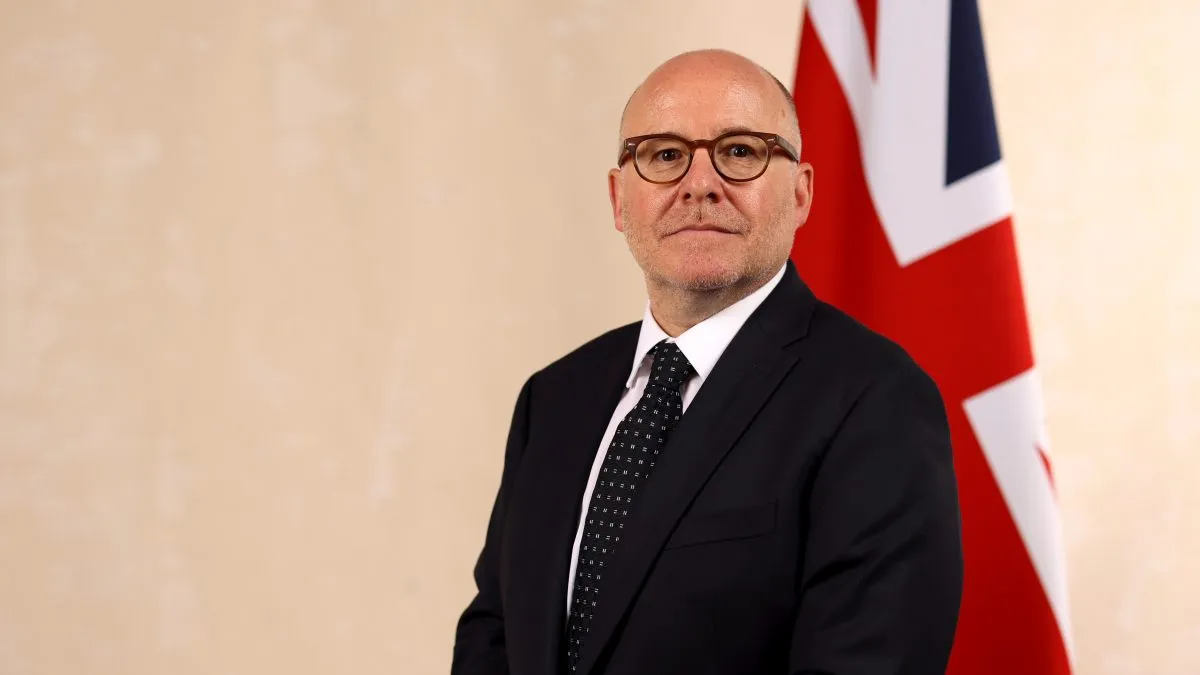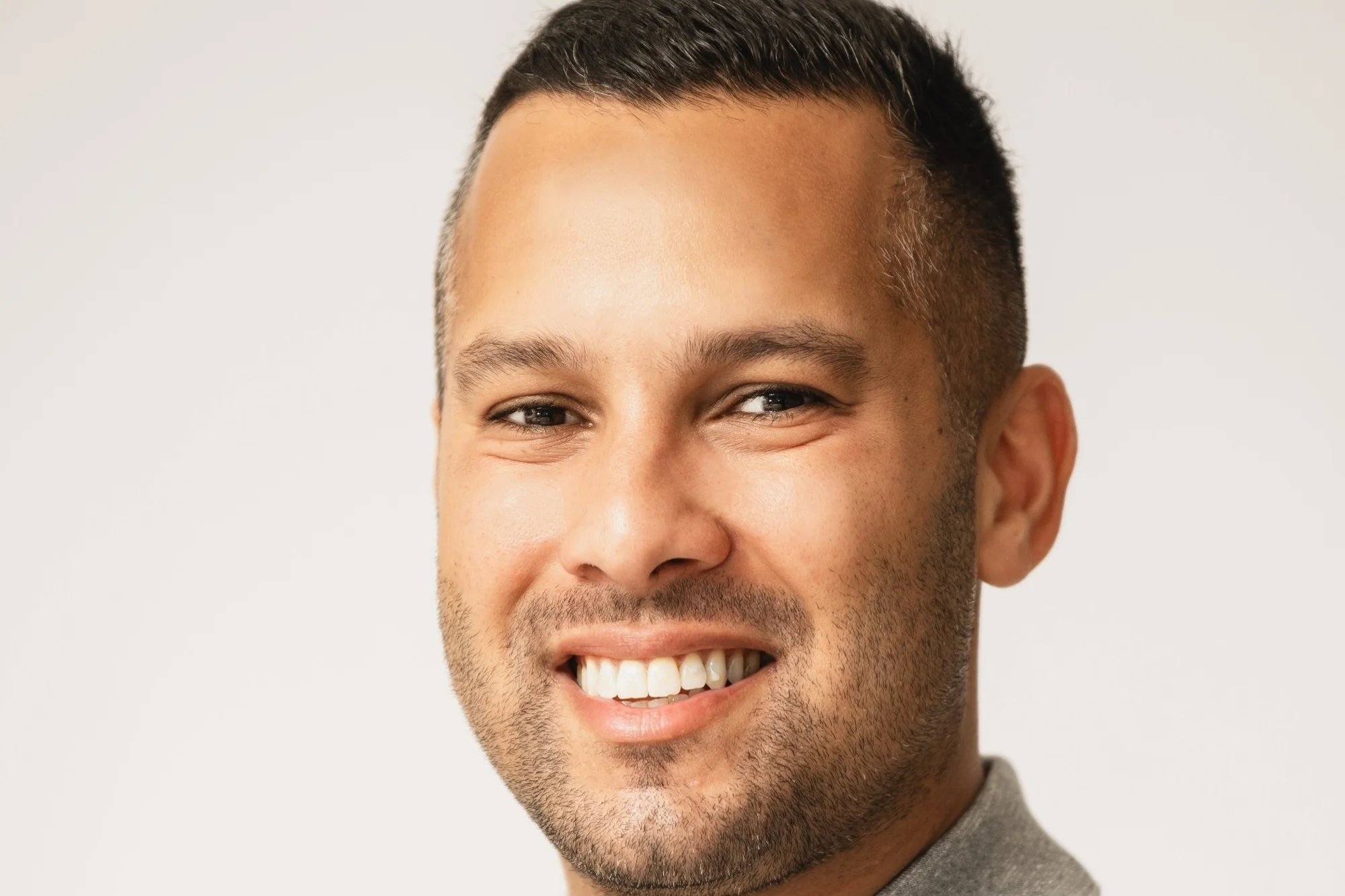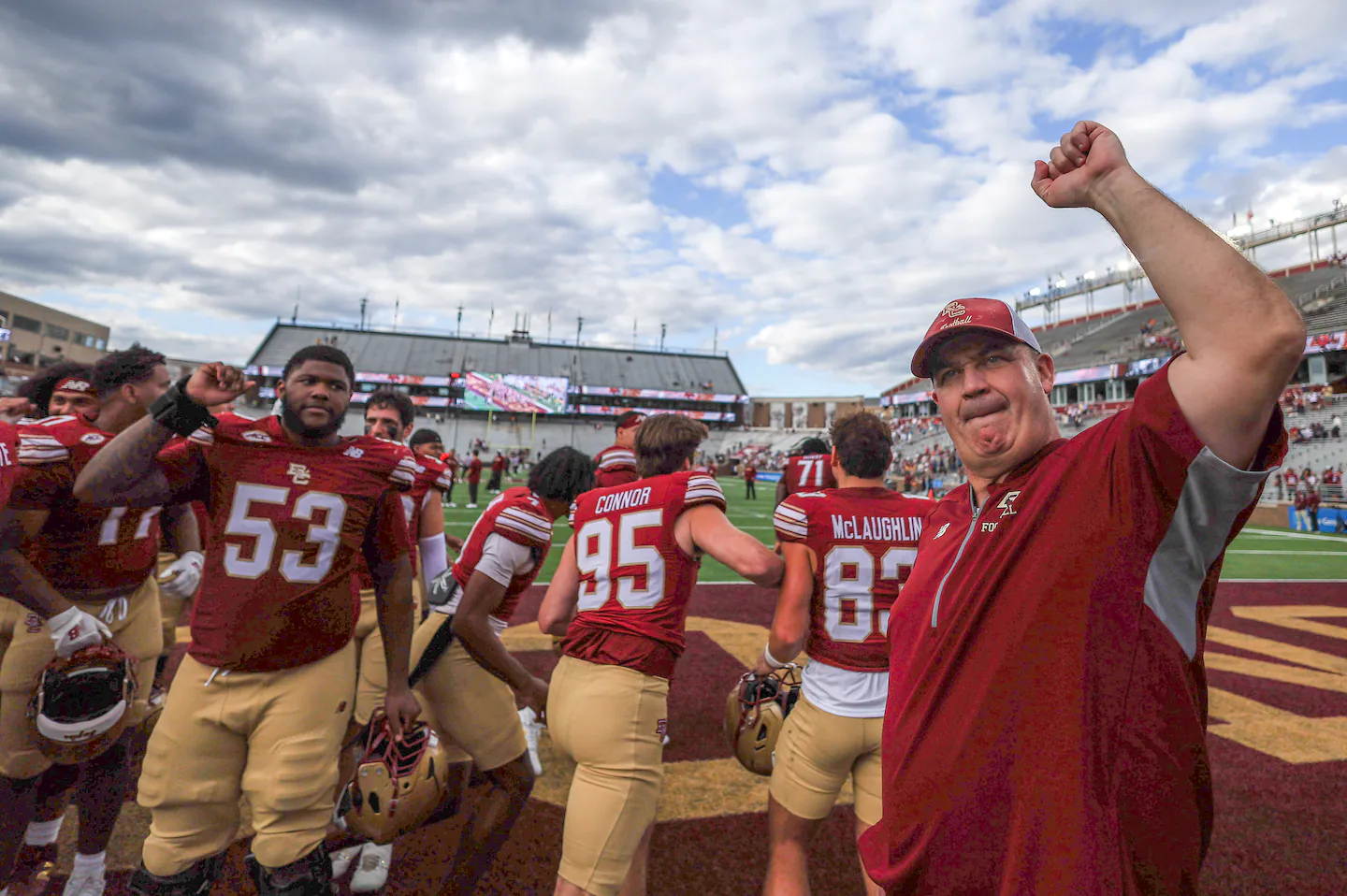
Winning an Emmy ought, under normal circumstances, to be the high point of an actor’s career.
For all the artists who won at this year’s Emmy ceremony, it was a moment they’ll remember for having been policed in the most sanctimonious and irritating manner possible.
Nate Bargatze, the ceremony’s disastrous host, set forth that he had set up a $100,000 pool of money to donate to the unimpeachable nonprofit the Boys & Girls Club. Money would be deducted from this pool, moment-by-moment, if a winner went over 45 seconds — and money would be added if they came in under time. (Bargatze brought real children, announced as beneficiaries of the Boys & Girls Club, to the ceremony, and they were super cute! They came to feel, though, more and more like props in the proceedings — supremely unfair.)
The whole concept was a nice idea for a single monologue joke — raising awareness for a group that does a lot of good while making sure that the ceremony doesn’t drift toward the four-hour mark. And yet it just felt badly underthought.
To wit: Hannah Einbinder won the supporting actress Emmy for “Hacks” — finally! In the show’s fourth season! After multiple ceremonies where she seemed so close but didn’t quite get there! For anyone who follows either the Emmys or one of the signature shows of our current streaming era, this would seem like a big deal. But Einbinder’s emotional speech wasn’t merely foreshortened, and thickened with a strange and ugly tension, by her own knowledge that her inability to sum her whole experience of “Hacks” up in 45 seconds would be impossible. It was, by the end, marked by a ticking clock marking how much money Einbinder was losing for the Boys & Girls Club by continuing to thank her collaborators and say what was on her mind after the time limit passed. “I’ll pay the difference, sorry,” she was forced to say, as she wrapped up.
As regards how time was spent on the Emmys ceremony, Einbinder’s speech, and its presentation, is already up on YouTube. Fully three minutes are spent on the presenters, who include Reba McEntire, being introduced by Bargatze and then paying tribute to the TV series “The Golden Girls,” for some reason. Einbinder speaks for a little more than a minute. This pattern continued throughout: Canned, rehearsed presenter dialogue — to say nothing of the lugubrious In Memoriam segment, during which singer Lainey Wilson slowly strode across the stage to join Vince Gill for long seconds before the reel started playing — unspooled for as long as it needed to. That, random awards-show detritus, was, of course, the cost of doing business, as were Bargatze’s inane intrusions. The real and raw emotions of people experiencing surprise, delight, and the sense of having something that needed to be said? Well, that was on a clock.
Not that Bargatze cared about how he came across to core viewers. He came across, throughout the ceremony, as perpetual hall monitor, seemingly interested exclusively in which stars met his standard and which fell short. If you were relieved, briefly, that the onscreen clock didn’t show during 15-year-old “Adolescence” actor Owen Cooper’s heartfelt acceptance speech — don’t worry! Bargatze was right there, right after, to note that it went over time. One wonders how he’d have reacted, in the moment, to Nicole Kidman’s powerhouse “Big Little Lies” Emmy speech, in which she spoke frankly about domestic violence even as the clock moved toward midnight. Would he have scolded her, too?
Probably! But what, if not for moments like Kidman’s speech, then, or Einbinder’s or Cooper’s speeches, now, do we even watch these things for? The standard Bargatze set was that of someone who is fundamentally uninterested in awards shows at all — which, while a fine way to go through life, raises the question of why he put himself forward to host one, or why he was hired. Bargatze’s seeming singleminded focus on a monetary figure that everyone must have known he’d end up replenishing at the end of the show (as, indeed, he did) seemed so thoroughly to lose the audience that the perpetual Emmys problem of people filing in and out of the theater as the host speaks looked pointed. To whom, even, was he speaking? Around him was an empty room.
Well, Bargatze was addressing an audience who hates awards shows, I guess, and those who get irritated when actors run on too long. It’s hard to imagine how many viewers of an Emmys telecast in 2025, with infinite streaming options available, secretly hate awards shows, but whoever they are, they likely found an ally in Bargatze. The rest of us were left to wonder what exactly he was doing.
Yes, the speeches can run long. And at the Emmys — which, unlike the Oscars, which honor only four actors per ceremony — there are a lot of egos to manage. But past hosts have addressed the need to come in on time with some grace. Conan O’Brien’s 2006 threat to kill Bob Newhart if the show went over time speaks to his particular comic imagination, which is certainly one-of-a-kind. But Bargatze’s bullyragging and berating actors coming off of the peak moment of their career suggests just how limited his comic imagination seems to be.
And it all seemed to come to naught. Bargatze added a bunch of money — bolstered, he said, by CBS — to bring the pot up to $350,000. But, thanks to his ministrations, the presenters of both the drama and comedy trophies had legitimate time to vamp. I’d rather have heard 10 more seconds from six winners at the Emmys than a minute of Brad Garrett and Ray Romano trying to fill time they didn’t expect to have before their best comedy presentation. That Bargatze doesn’t agree is regrettable. It also should mark an end both to his hosting career and to this particular angle on awards shows, that they’re ultimately intended for an audience that hates them and wants to see their winners cut off at the knees. The interesting part is when the winners speak — and Bargatze, tonight’s relentless spoilsport, wouldn’t know anything about winning at the Emmys.



